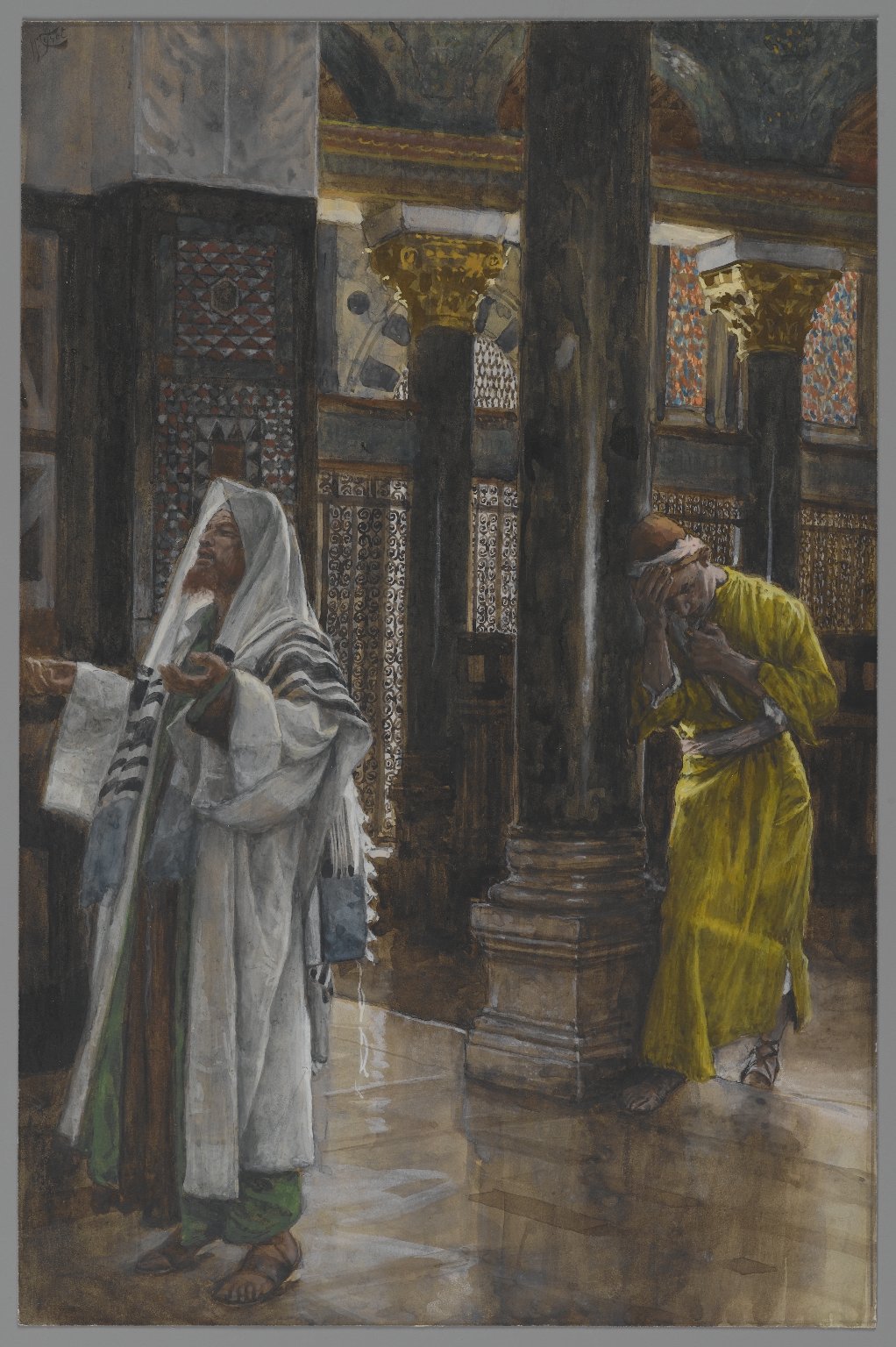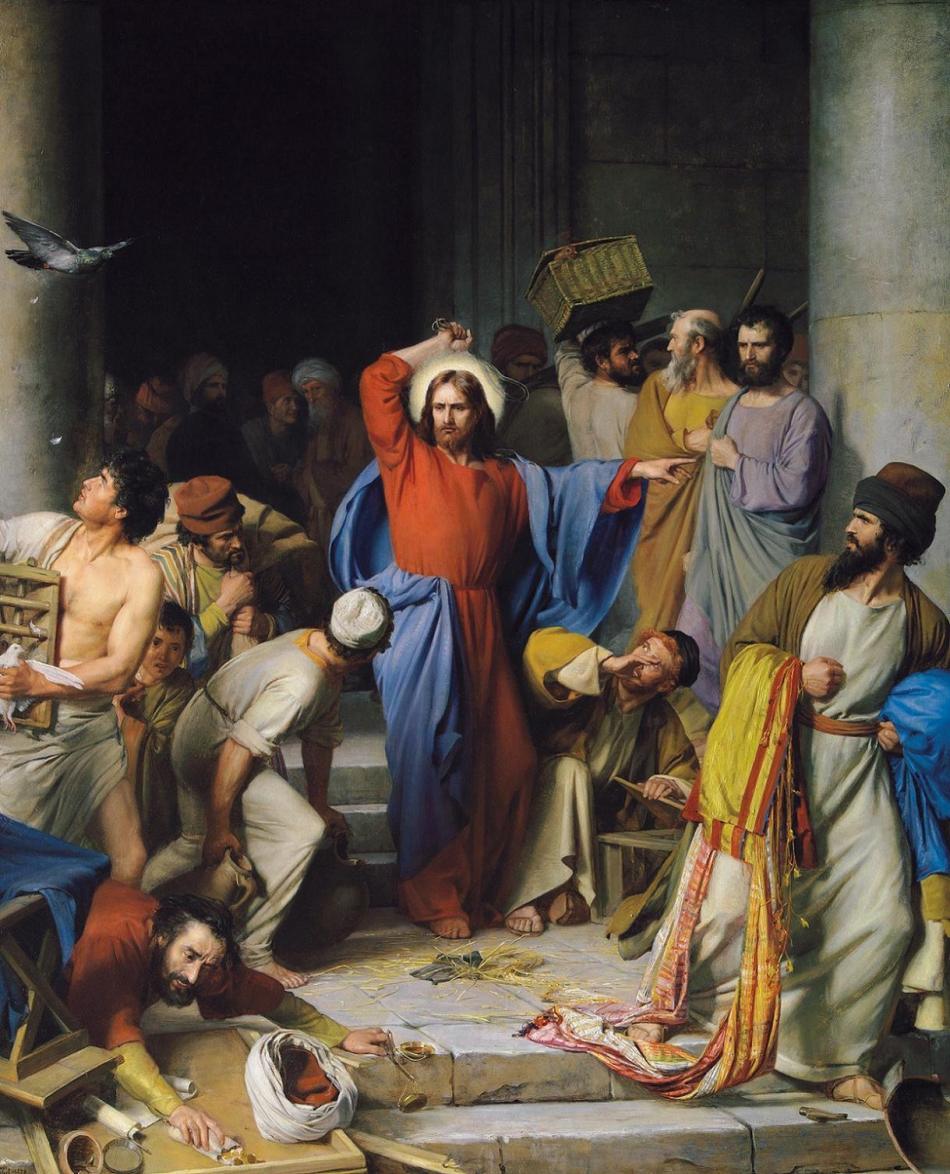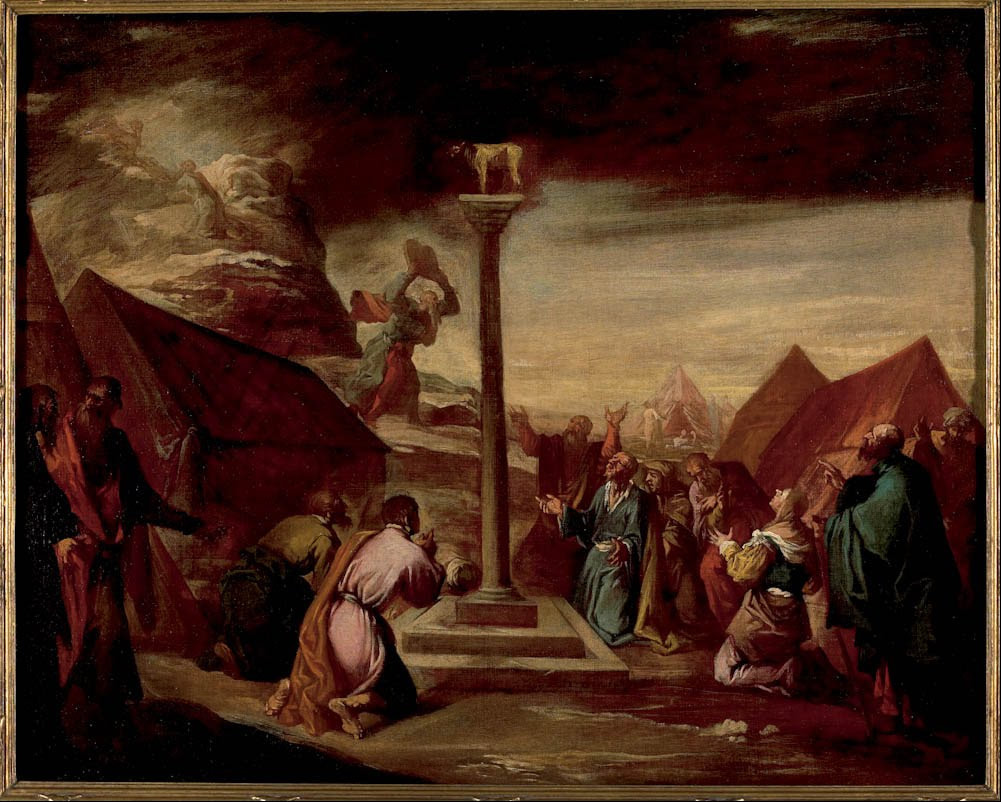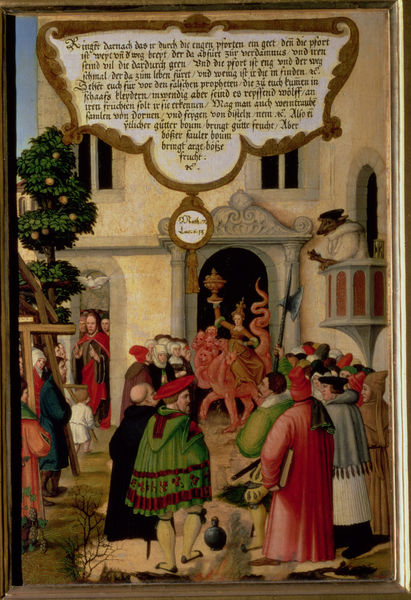Luke 18:9-14
August 23, 2020
When Jesus saw that some were confident in themselves that they were righteous and held others in contempt, he taught a parable to show who really is righteous before God and who is not. And to the surprise of his listeners, it was not the Pharisee, but the tax collector who went down to his house justified, that is, declared righteous by God! It was a surprise that the Pharisee did not go down to his house justified, because Pharisees were known to be good outstanding citizens. We heard it from the Pharisee himself. He didn’t cheat, steal, or commit adultery. He gave a tenth of all that he received to the LORD. He was a good pious man. Yet, God did not find him righteous.
And it is common to relate this story to our time and place to find out who is the Pharisee among us. In Martin Luther’s day it was the pope, the priests, and the monks, whom everyone thought were the most righteous men on earth and closest to God. Families would actually send one of their sons to the monastery to become a monk, so that his extra good works could be counted in their favor, so confident were people in the righteousness of these monks.
Who would be the Pharisees in our day? Perhaps the leaders of the church, the preachers and teachers, who seem good on the outside, but probably have some hidden sin? Maybe those Christians who are always at church helping out, making others look bad? Of course, there are a lot of self-righteous celebrities, who lecture people on how they can live a better life. Yet, the reason Jesus chose the Pharisee as the one who was not righteous was because he was the last person they would expect to be unrighteous. So, who is the last person you would expect to be unrighteous?
Is it you? Do you, like the Pharisee, justify yourself, so that you never admit you’ve done wrong? Do you hold others in contempt for not being as righteous as you think you are or because you perceive them to be self-righteous? You see, the point of Jesus’ parable is not for you to determine whether other people are hypocritical, self-righteous Pharisees, but rather whether you are righteous before God or not. To be declared righteous by God is a very personal thing. It doesn’t regard others. It’s between you and God. You can’t prove yourself righteous before God by tearing others down. When you hear Jesus speak of the self-righteous Pharisee, you should ask yourself whether you are the Pharisee.
The Pharisee was not righteous, because he trusted in his own righteousness instead of the righteousness that comes through faith in Christ. He did not humble himself before God. He did not repent of any sin. He thought God should accept him because of how good he was. He was self-righteous. And you don’t need to be a religious big shot to be self-righteous. To be self-righteous means that you think you are righteous before God and you do not need to repent of any wrong doing. Have you refused to admit doing wrong? Have you brushed it off when a fellow Christian has confronted you with your own sin? Do you make excuses for everything, so that the blame falls on anyone else but you? That is what the Pharisee did. You must not be like the Pharisee, or you will never be righteous before God. You must be like the tax-collector.
The tax-collector was an unlikely character to be found righteous before God. Tax collectors were known to be cheats, who enriched themselves by collecting more money than was required of them. Jesus couldn’t have picked a more unlikeable character than a tax collector. Yet, again, the point of Jesus’ parable is not for you to look at how bad the tax collector is as if he’s worse than you. The point of Jesus’ parable is for you to identify yourself with the tax collector. Do you think you are more worthy than the tax collector to stand before God and look up to heaven? No, we must do as the tax collector did. Do not focus an anyone else’s sins. Rather, confess to God that you are the sinner. And pray for mercy.
It’s hard to imagine a greater contrast than the prayer of the tax collector and that of the Pharisee. The Pharisee used many words glorifying himself. The tax collector simply called himself a sinner. Yet, the most important distinction between the Pharisee and the tax collector is that the tax collector had faith and the Pharisee did not.
We know that the tax collector had faith, not only because he admitted that he was a sinner and showed himself to be sorry, but because he trusted in God to show him mercy. And the tax collector did not simply ask for mercy. The word he used means, “Be propitiated.” He prayed that God would be propitiated to him. To be propitiated means that God’s wrath is taken away. It means to be appeased, to be satisfied. God no longer demands anything from you. It is sacrificial language. God is propitiated by sacrifice. The men are in the temple where lambs and other beasts are sacrificed and their blood is poured on the altar. The tax collector knows that without the shedding of blood there is no forgiveness of sins. Yet, he also knows that the blood of bulls and goats can never take away sin. The sacrifices in the temple point to the sacrifice of Christ Jesus, the spotless Lamb of God, who takes away the sin of the world. That sacrifice is the basis by which the tax collector asks God to be propitiated to him.
St. Paul writes in Romans chapter 3, “For all have sinned and fall short of the glory of God, and are justified by his grace as a gift, through the redemption that is in Christ Jesus, whom God put forward as a propitiation by his blood, to be received by faith.” It is through faith in the blood of Jesus, which propitiates, that is reconciles God to us that makes us righteous in God’s sight. The Pharisee did not trust in the blood of Christ. The tax collector did. That is the great difference.
In our Old Testament lesson, we heard how Cain and Abel both offered sacrifices to the Lord, but God did not accept Cain’s offering of fruit from the ground, but God did accept Abel’s offering of the firstborn of his flock and its fat portions. Now, this is often understood that Cain didn’t offer the best crops he had and that is why God did not accept his offering. But that is not what the text says. And it would hardly make sense for Cain to be upset at God for not accepting his offering of rotten vegetables and bruised fruits. Much more likely is that Cain offered the best he had, yet God did not accept it. That’s what made Cain so mad that murder arose in his heart!
So, why didn’t God accept Cain’s offering, if Cain offered his best? Because Cain had no faith. He offered his best to God just like the Pharisee, thinking God should accept his offering, because of how good it was. Yet, St. Paul teaches us to consider all we have as rubbish, so that we can be found not having a righteousness of our own, but one that comes through faith in Christ. Abel had faith. He offered the first fruit of his flock and its fat portions, because he believed that God would send his Firstborn to shed his blood for his sins, as God promised his parents in the Garden after they sinned. This is why Hebrews 11:4 says, “By faith Abel offered to God a more acceptable sacrifice than Cain, through which he was commended as righteous, God commending him by accepting his gifts.”
God was propitiated to Abel through the blood of Christ, which makes propitiation for all sins. This is the only way to be found righteous by God. St. John writes, “But if anyone does sin, we have an advocate with the Father, Jesus Christ the righteous. He is the propitiation for our sins, and not for ours only but also for the sins of the whole world.” To be justified by God means to be forgiven. Only by being forgiven of your sins can you be found righteous before God. And only Jesus by his suffering and death can forgive you.
You might have noticed that the Scripture says that Jesus is the propitiation not only for our sins, but for the sins of the whole world. Indeed, Jesus died for all people and for all sins. This is why the tax collector could be so bold as to pray that God would be propitiated to him. He knew the promise. There is no one whose sin is so great that Jesus’ blood does not wash it all away.
This also shows the great tragedy for the Pharisee. Jesus shed his blood for the Pharisee too. Jesus made atonement for his sins. God is propitiated to the Pharisee by the blood of Christ! God loves the Pharisee! Yet, the Pharisee will not receive this forgiveness. He doesn’t want God’s righteousness as a gift. He traded in God's righteousness through faith for his own righteousness, which was rubbish. This is the danger of unbelief. It throws away a gift that God has won for all people.
The Pharisee’s righteousness fell short. And it showed. He held others in contempt. This is the fruit of self-righteousness: hatred. If you trust in yourself to be righteous, your righteousness will lead to hating others. You will try to make others seem worse than you in your own mind. You will despise those whom you think are worse than you and you will malign those, whom you fear are better than you. But the fruit of the righteousness through faith in Jesus is love. Because Jesus’ righteousness is given to those who in humility repent of their sins and consider others more significant than themselves. Faith in Christ means that you recognize that all people like you are in need of Jesus’ righteousness and that Jesus indeed died to save all people. And the righteousness that you receive through faith in Christ is real righteousness. Through faith, Jesus dwells in you. God now works in you to do works of love. This is why Jesus says, “They will know that you are my disciples, by how you love one another.”
This parable might look like it is about the Pharisee and the tax collector, those who are self-righteous and those who in faith repent of their sins and ask for forgiveness. But this parable is primarily about God and his great mercy for us in Christ Jesus. God is more willing to hear than we are to pray. He is more willing to forgive than we are to ask for mercy. God’s desire is for you to be righteous in his sight through faith in his Son. God is ready to exalt those who humble themselves, even as he is ready to humble those who exalt themselves. Jesus sacrificial death, which propitiates God to us gives us the courage to ask God for the greatest things imaginable, even eternal peace with him, no matter how terribly we’ve sinned against him. May we learn from the tax collector to be confident in our God’s mercy. Do not be afraid to confess your sins and humble yourself before God. By the merits of Christ, God will raise you up. For Christ’s sake you are righteous in God’s sight. Do not trust in yourself that you are righteous. Trust in God that you are righteous for Christ’s sake. Amen.




 RSS Feed
RSS Feed